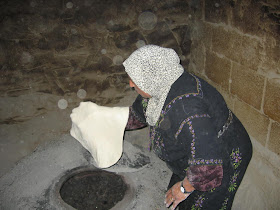.
Returning to our little group (you are invited to join us) at Robert Geiss'
Psalm Challenge meme, I add some illustrations for
Psalm 44.
.

1We have heard with our ears, O God, our ancestors have told us, what deeds you performed in their days, in the days of old:
2you with your own hand drove out the nations, but them you planted; you afflicted the peoples, but them you set free;
3for not by their own sword did they win the land, nor did their own arm give them victory; but your right hand, and your arm, and the light of your countenance, for you delighted in them.
4You are my King and my God; you command victories for Jacob.
5Through you we push down our foes; through your name we tread down our assailants.
6For not in my bow do I trust, nor can my sword save me.
7But you have saved us from our foes, and have put to confusion those who hate us.
8In God we have boasted continually, and we will give thanks to your name forever. Selah

9Yet you have rejected us and abased us, and have not gone out with our armies.
10You made us turn back from the foe, and our enemies have gotten spoil.
11You have made us like sheep for slaughter, and have scattered us among the nations.
12You have sold your people for a trifle, demanding no high price for them.
13You have made us the taunt of our neighbors, the derision and scorn of those around us.
14You have made us a byword among the nations, a laughingstock among the peoples.
15All day long my disgrace is before me, and shame has covered my face
16at the words of the taunters and revilers, at the sight of the enemy and the avenger.

17All this has come upon us, yet we have not forgotten you, or been false to your covenant.
18Our heart has not turned back, nor have our steps departed from your way,
19yet you have broken us in the haunt of jackals, and covered us with deep darkness.

20If we had forgotten the name of our God, or spread out our hands to a strange god,
21would not God discover this? For he knows the secrets of the heart.
22Because of you we are being killed all day long, and accounted as sheep for the slaughter.

23Rouse yourself! Why do you sleep, O Lord? Awake, do not cast us off forever!
24Why do you hide your face? Why do you forget our affliction and oppression?
25For we sink down to the dust; our bodies cling to the ground.
26Rise up, come to our help. Redeem us for the sake of your steadfast love.
.
Translation is
NRSV. Hebrew original and an older translation are
here. See also
Rabbi Segal's study of this psalm.
.
PHOTOS:A sculpture at the Israel Museum.
Sheep grazing in the Jura Mountains, Switzerland.
A dead jackal in my village.
"The [Aztec] god
Nanauatzin" by Yifah Adir, Mamilla mall, Jerusalem.
Grandson Dean at the Children's Wing, Israel Museum.
.
 "Al tichapess, SMS!" - Don't go searching, just SMS!
"Al tichapess, SMS!" - Don't go searching, just SMS!
















































